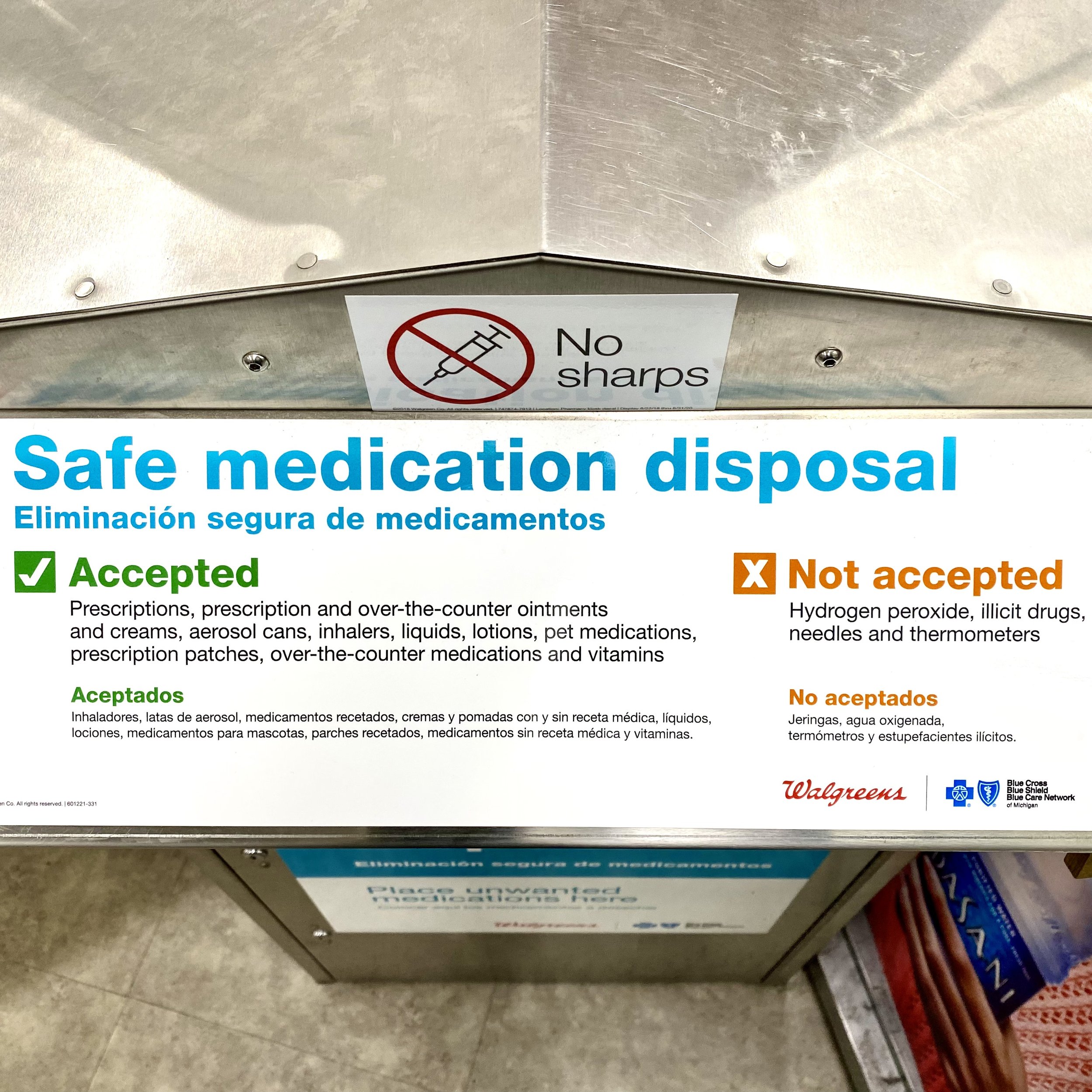How to Store + Dispose of Medications
The proper storage and disposal of medication is one category that we should all take seriously. First, I must acknowledge that I am not a pharmacist or medical expert. Contact a qualified medical practitioner for specific questions. As a caregiver and parent, I do know that incorrect or careless storage of drugs can lead to severe illness and death in both humans and pets. Once you learn the essentials, you’ll be in a powerful place to keep those in your circle safe.
(For the purposes of this article, the guidelines for proper storage and disposal of medications also encompasses vitamins and supplements. They’re interchangeable here.)
Medication Storage
I have distinct memories of the electric green “Mr. Yuck” sticker that was affixed to medications and cleaning products when I was younger. The sticker was a visual reminder that chemicals and prescription substances would make you very sick if ingested. Although the stickers are no longer ubiquitous, the concept of safe storage is.
Keep drugs in the container you received them in.
The labels contain critical information about dosage and possible substance interactions. You’ll want this on hand in an emergency.Expiration dates on the packaging provide vital information.
Set a reminder in your calendar every 3 months to do a quick scan of the expiration dates. Don’t forget to check your purse, office, and / or travel cases. Checking the expiry dates frequently will make the task move quickly.Refrigerate medications + vitamins as necessary.
Many drugs cannot tolerate extreme temperatures, others require it.Store meds (and vitamins) in a cool, dry place.
If your kiddos or pets can reach them, move them higher.Bathrooms are often too humid for proper storage.
Aim for storage in the linen closet or kitchen. If the texture of the item changes, the temperature at which you’re storing the item may be incorrect.
If you or someone you know ingests an unknown household substance or mixes up pills, contact Poison Control immediately (800) 222-1222. Call 911 if they collapse, have a seizure, or have trouble breathing.
Medication Disposal
As my mother’s dementia was developing, she stockpiled expired medication. She was unsure of how to dispose of it, and she was increasingly paranoid about having her private information from the prescription label out in the public domain. When my brother and I began her downsizing process, we discovered an excessive number of empty bottles and out of date vitamins.
Be sure to keep an eye out for your loved one’s abilities to manage their prescriptions and administer their own medication.
Many pharmacies have drug “take back” or safe disposal programs. Look for a secure bin near the pharmacy counter or ask the pharmacist directly. If not,
Search “safe meditation disposal” and your zip code to discover free local resources in your community.
Needles, including epinephrine pens, need a special sharps disposal container.
These are heavy duty plastic bins that can’t easily be punctured.
Check out Safe Needle Disposal for your local guidelines.Medications can’t go down the toilet. It will pollute the local water system.
If you don’t have access to safe medication disposal, the following “recipe” is an alternative to keep children, pets, and the environment as safe as possible.
Medication Disposal Recipe
Mix drugs (do not crush) with dirt, kitty litter or used coffee grounds and add a small amount of
water to dissolve any solid medications.
Seal drugs in a plastic bag. Place plastic bag in the trash.
Take prescription container and scratch out personal information, then recycle or throw away.
Choose to be proactive and responsible about the storage and disposal of drugs, needles, vitamins, and supplements. Put a quarterly reminder in your calendar to scan your medicine cabinet, purse, and office for expired medications. The process will become quick and easy after your first round or two. You’ll know what you have, what refills you need, and what’s ready to be isolated for medication disposal.
Want a quick visual of the Medication Disposal Recipe? Download a free copy here.


